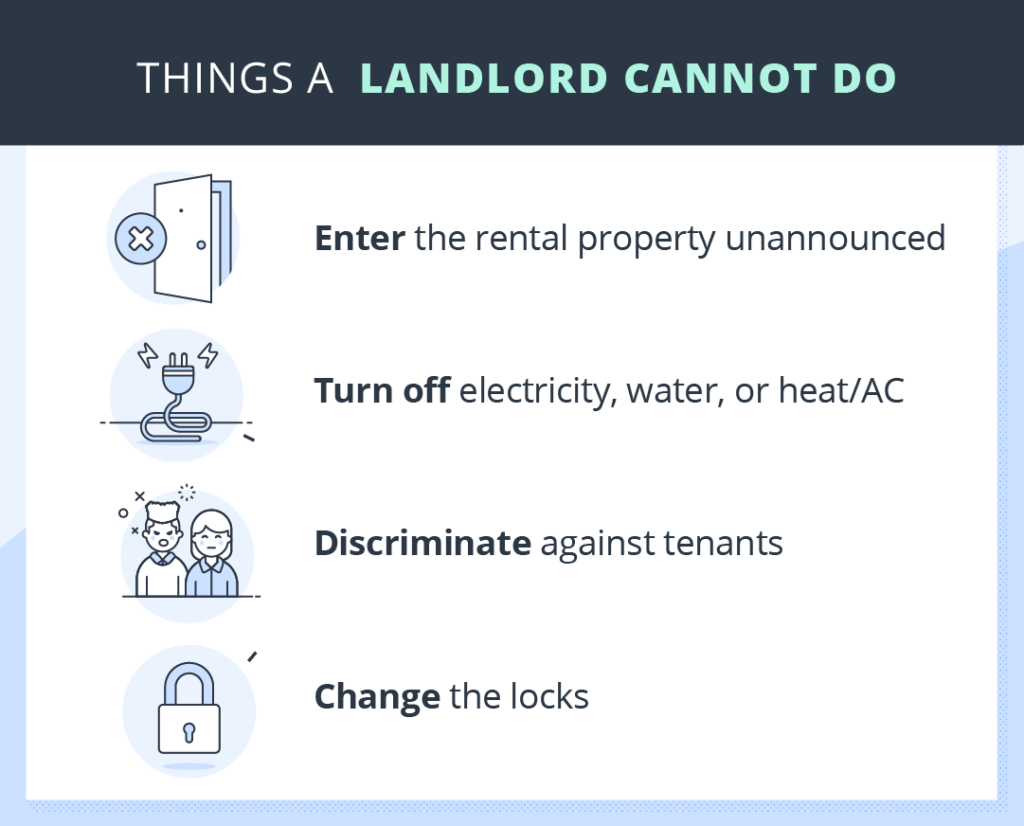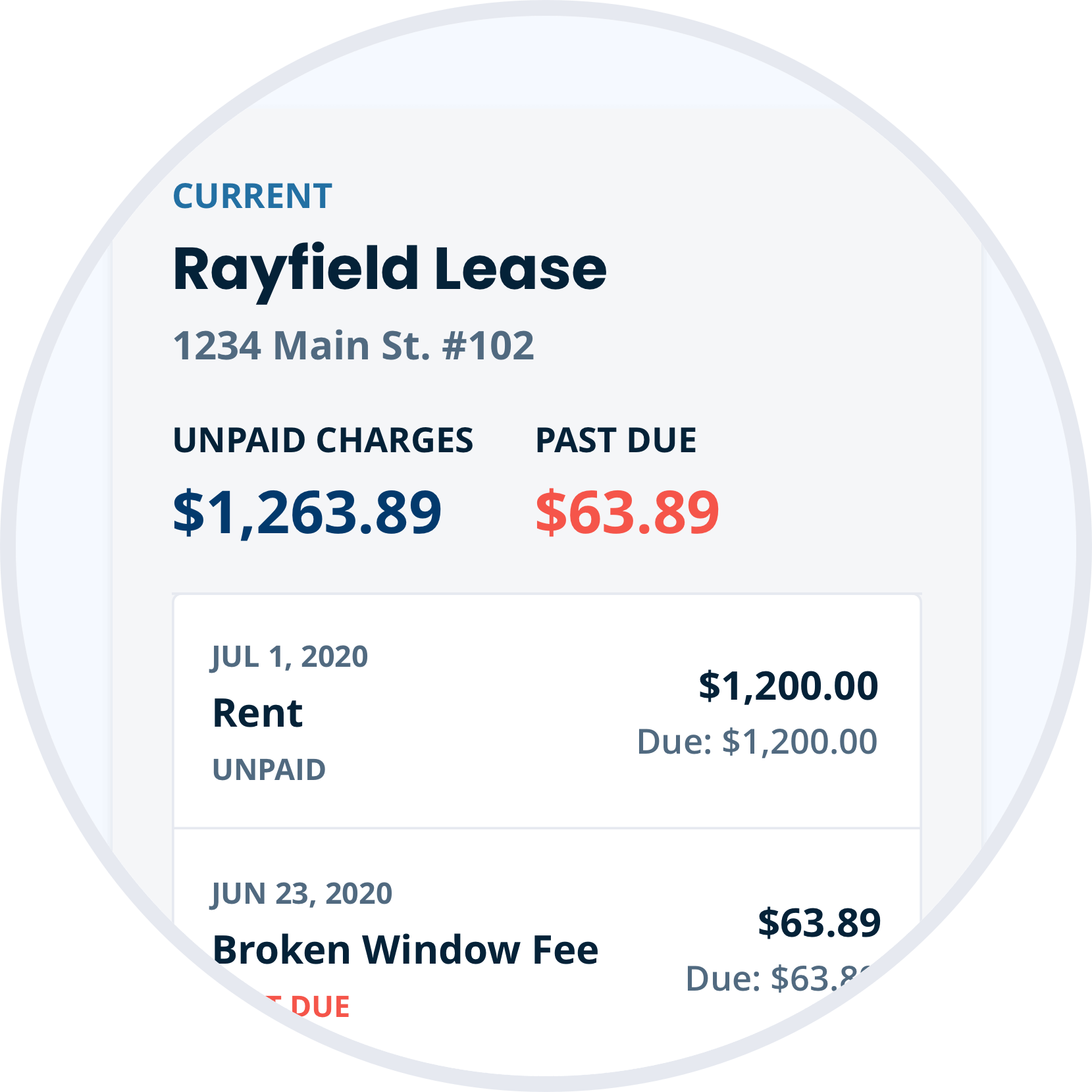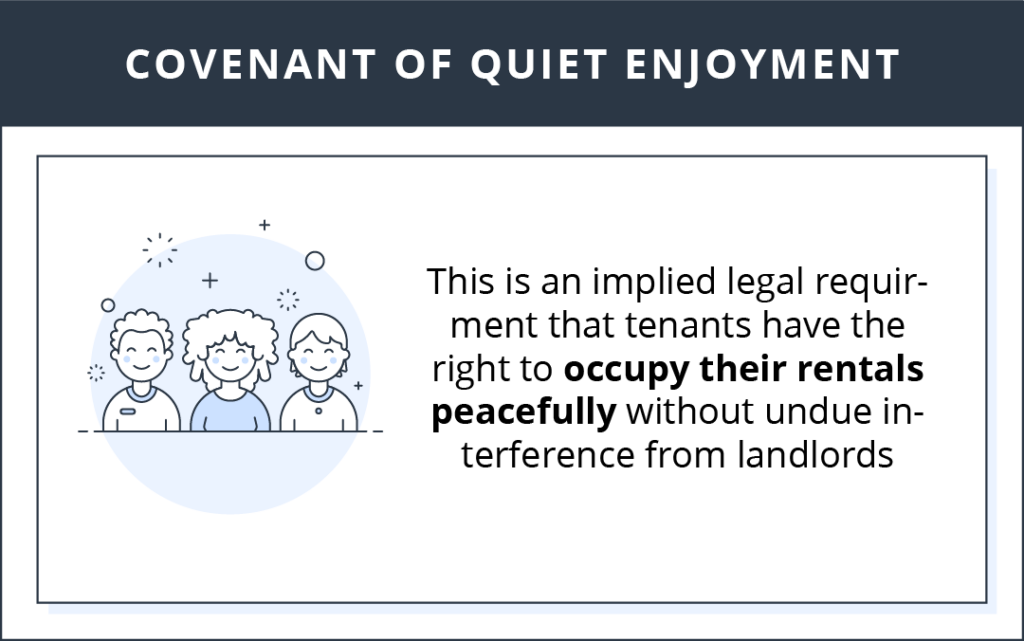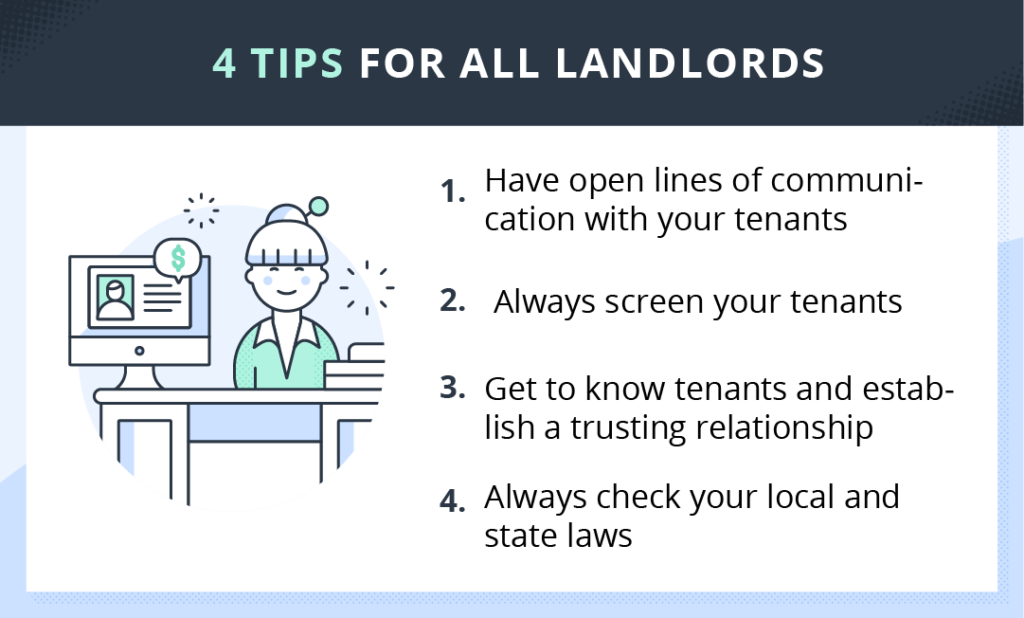What Can a Landlord Not Do
- May 14, 2020
What a Landlord Cannot Do: How to Always Follow the Law as a Landlord
For the most part, being a landlord can be a seamless and easy job if you have great tenants and stay educated – however, it's important to know what a landlord cannot do. Especially for new landlords, sometimes there are things you aren't aware of or you might not be familiar with and you must learn to protect yourself and your rentals from liability.
If you are new to property management, be sure to check out our thorough guide onhow to be a landlord so you'll be prepared in all aspects of the job. Researching and educating yourself on local and state laws pertaining to property management is essential so you can always follow the law as a landlord. Oftentimes, there are illegal things landlords do without knowing, which is why there are a few basic rules to know that generally apply everywhere – keep reading to find out how to always follow the law as a landlord.

Entering the Rental Property
When it comes to entering rental properties, landlords usually need to give at least a 24-48 hour notice – this varies from state to state, but it's always a good rule of thumb to follow. Entering the property unannounced or unplanned is illegal and a violation of tenants' rights. Just because landlords may own the rental property does not give them the right to enter the property any time they want – it is a lease violation. The only exception to this rule is in case of an emergency, landlords are allowed to enter the property without consent. If they believe the property has been abandoned then they may also enter. Types of emergencies include the following:
- Fires
- Gas Leaks
- Natural Disasters
- Dangerous Situations
Turning Off Electricity, Heat, or Water
Turning off the electricity, heat, AC, or water in a rental property, whether it's because you have a trouble tenant or going through the eviction process, is illegal. This violates the warranty of habitability which is an implied legal sense that landlords have to make repairs to ensure the rental unit remains habitable. Critical things that apply to the warranty of habitability are obviously, HVAC, water, broken electricity, or pest infestations.
Additionally, turning the heat, AC, or water off can be categorized as aself-help eviction. This is any action that landlords might take to evict a tenant that is not allowed in the state and local laws pertaining to evictions. Another example of an illegal self-help eviction would be changing the locks – landlords cannot do this at any time even if an eviction process is on-going.

Start Collecting Rent Online
You and your tenants will love how convenient it is when you don't have to coordinate pick up times or run to the bank. Learn more about Rent Payments.
Landlords Cannot Discriminate Against Tenants
Hands down one of the most vital rules to follow as a landlord are housing discrimination laws – below are some more specifics, but be sure to read here for five important laws landlords should know.
- Fair Housing Act – This protects renters from discrimination because of race, color, national origin, religion, sex, familial status, and disability. It is illegal to refuse renters or to evict tenants based on any of these provisions and also anything that is considered a discriminatory act such as limiting privileges and delaying maintenance.
- State Fair Housing and Landlord-Tenant Laws – Every state has its own statewide and local laws regarding fair housing and general landlord-tenant laws . Make sure you are familiar with your state and city regulations.
Being Unresponsive
Communication is a huge part of being a successful landlord and it's important that your tenants can easily reach you and know exactly how to contact you – especially in case of emergencies. Landlords must be responsive when it comes to making repairs – while it depends on the state, landlords usually have a given amount of time they must respond to tenants' complaints and property repairs. Ignoring your tenants and rental property could lead to further damage and frustration.
Covenant of Quiet Enjoyment

The covenant of quiet enjoyment is something that is an implied legal requirement and is often outlined in leases. Basically, it means tenants have the right to occupy their rented space peacefully without undue interference from landlords; it also means landlords must take care of issues that are disruptive to the covenant of quiet enjoyment. Examples of landlords interfering are things such as harassment or entering the property unannounced. Issues landlords must resolve that pertain to the covenant of quiet enjoyment include noise complaints or maintenance requests.
It's also important to recognize that landlords might have to resolve issues caused by tenants themselves that might be infringing on other residents – technically, tenants cannot violate the agreement since it's one-way. These types of instances include things like tenants throwing parties that are extremely loud and crowded which obviously affect others in the building.
When it Comes to Raising Rent
Make sure to check specific city and state laws when it comes to raising rent . However, generally, landlords cannot raise the rent during a long-term lease but can raise it if/when they offer a lease renewal. Month-to-month leases are different in that landlords are allowed to raise the rent with proper notification and in-writing.
If you live in an area where there are rent control laws, you might have different requirements. For example, as of 2020, California landlords cannot raise the rent more than five percent plus the local rate of inflation in one year. Other states and areas with rent control restrictions include the following:
- New York
- New Jersey
- Maryland
- Oregon
- District of Columbia
Helpful Tips All Landlords Should Follow

When it comes to what a landlord cannot do, it might seem like there are a lot of requirements, but overall it's easy and simple to follow the correct processes as a landlord and there are a few tips to adopt that will ensure you can always follow the law:
- Communication with tenants – maintaining good communication with renters will help you avoid problems and situations that could turn into questionable practices. Read our helpful guide on how to communicate with different generations.
- Proper screening – tenant screening can't be stressed enough as it will ensure you have trustworthy tenants who are a good fit for you and your rental property. Don't risk the headache and damages that might come without screening your tenants.
- Get to know your tenants from the beginning – having open lines of communication and a professional relationship with your tenants will establish trust and make solving issues/problems easier and less stressful.
- Always check your local and state laws – when in doubt, it's never a bad idea to read up on your landlord-tenants laws and constantly be educating yourself as well as your tenants.
Being a landlord doesn't have to be a stress-filled job – as long as you follow the right protocols and are familiar with what a landlord cannot do, you'll be able to run a successful rental business and see the return on your investment.
Disclaimer:
TurboTenant, Inc does not provide legal advice. This material has been prepared for informational purposes only. All users are advised to check all applicable local, state and federal laws and consult legal counsel should questions arise.

Taylor Marley
Taylor is a Marketing Manager at TurboTenant where she helps curate a variety of content to help landlords and renters throughout the rental process. She has covered many industries and is an expert in the property management industry as well as the real estate tech space.
Most Popular Posts
Interested in streamlining your rental process?
TurboTenant makes managing your property simple with features like one-click rental marketing, extensive online applications, and free credit & background checks for landlords.
Stay up to date on the ins and outs of being a landlord.
Subscribe to our weekly newsletter so you don't miss out on our latest articles and resources.
TURBOTENANT BLOG
Read Our Latest Articles
Join the 400,000+ independent landlords who rely on TurboTenant to create welcoming rental experiences.
No tricks or trials to worry about. So what's the harm? Try it today!
Source: https://www.turbotenant.com/blog/what-a-landlord-cannot-do/
0 Response to "What Can a Landlord Not Do"
Post a Comment